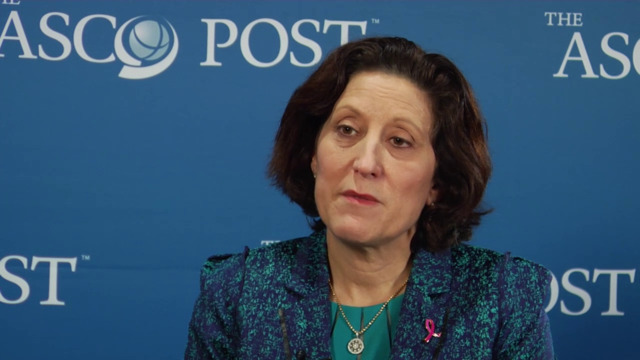Lisa A. Carey, MD, on the TNT Trial
2014 San Antonio Breast Cancer SymposiumLisa A. Carey, MD, of the UNC Lineberger Comprehensive Cancer Center, discusses abstract S3-01, “The TNT trial: A randomized phase III trial of carboplatin compared with docetaxel for patients with metastatic or recurrent locally advanced triple negative or BRCA1/2 breast cancer."





